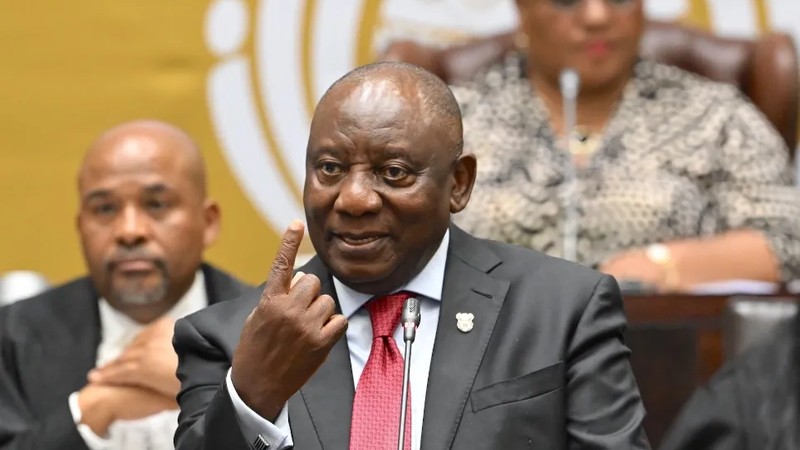The Presidency says the Democratic Alliance (DA) criticises everything President Cyril Ramaphosa does and that it is used to such reactions.
This was Ramaphosa’s spokesperson’s response to the DA’s criticism of the president’s choice of panel to nominate the next National Director of Public Prosecutions (NDPP), which the party argues lacks sufficient legal expertise.
Speaking at a media briefing at the Union Buildings on Monday, presidential spokesperson Vincent Magwenya said the Presidency had not issued an official response to the DA’s remarks.
“We have not responded to the criticism. The DA criticises everything the president does, so we are accustomed to that,” Magwenya said.
He added that Ramaphosa had not received any formal correspondence from the DA on the matter.
“As far as I’m concerned, there’s been no official correspondence that the DA has delivered to the president’s office substantiating those claims. I’ve only seen press statements and headlines in that regard,” he said.
Magwenya said Ramaphosa remained confident in the panel’s composition.
“The president is satisfied that the individuals appointed to that panel are fit for purpose and suited to the task of assisting him in selecting the next NDPP,” he said.
Ramaphosa recently appointed Justice and Constitutional Development Minister Mmamoloko Kubayi to chair the panel tasked with selecting a successor to current NDPP Advocate Shamila Batohi, whose term ends in January 2026.
The panel has been mandated to conduct an open and transparent process, calling for public nominations, shortlisting and interviewing candidates, and submitting three suitable nominees to the president along with a full report within three months.
Other members of the panel include the chairpersons of the South African Human Rights Commission, the Commission for Gender Equality, the Public Service Commission, and the Auditor-General of South Africa, as well as representatives from the Black Lawyers Association and the National Association of Democratic Lawyers.
Ramaphosa has stressed the importance of the NDPP’s role in upholding the rule of law and ensuring the independence and integrity of the National Prosecuting Authority (NPA).
However, the DA has strongly objected to the panel’s composition.
“Despite the DA’s urgent call on July 17, 2025 to begin the process of appointing an NDPP, the president waited a full two months before acting. In addition to the 100-day time limit, the president’s selection panel raises serious concerns,” said DA MP and spokesperson on justice and constitutional development, Advocate Glynnis Breytenbach.
Breytenbach argued that the panel lacked the necessary expertise to identify a qualified candidate.
“The NPA has all but collapsed and is in dire need of leadership. The new NDPP will have to play an integral role in rebuilding it,” she said.
“Shockingly, the panel is completely devoid of criminal justice legal experts. Not a single member of the judiciary or criminal prosecution is included. How can a panel devoid of any prosecutorial expertise nominate candidates for the most important prosecutorial position in South Africa?”
She said the organisations represented on the panel – including the Human Rights Commission, the Commission for Gender Equality, and the Public Service Commission – have mandates unrelated to criminal justice.
“It is unclear what contributions of value these bodies will be able to make in the selection process, if any. The president must ensure the best candidate is selected to properly lead the NPA out of its crisis,” Breytenbach added.
She further accused Ramaphosa of failing to act decisively to restore the integrity of the NPA.
“Nearly eight years have passed since he assumed office, and the NPA remains gutted by state capture – a state of affairs orchestrated to favour the majority party,” she said.
The DA, the largest partner in the Government of National Unity (GNU), has frequently clashed with the ANC over key policies.
The ANC, led by Ramaphosa, is leading the GNU.
Tensions between the two parties have persisted since the formation of the coalition government at the national level, with the DA at times threatening to withdraw.
Despite these disputes, the party has opted to remain in the coalition, saying it is committed to holding those involved in corruption and nepotism accountable.
Politics
